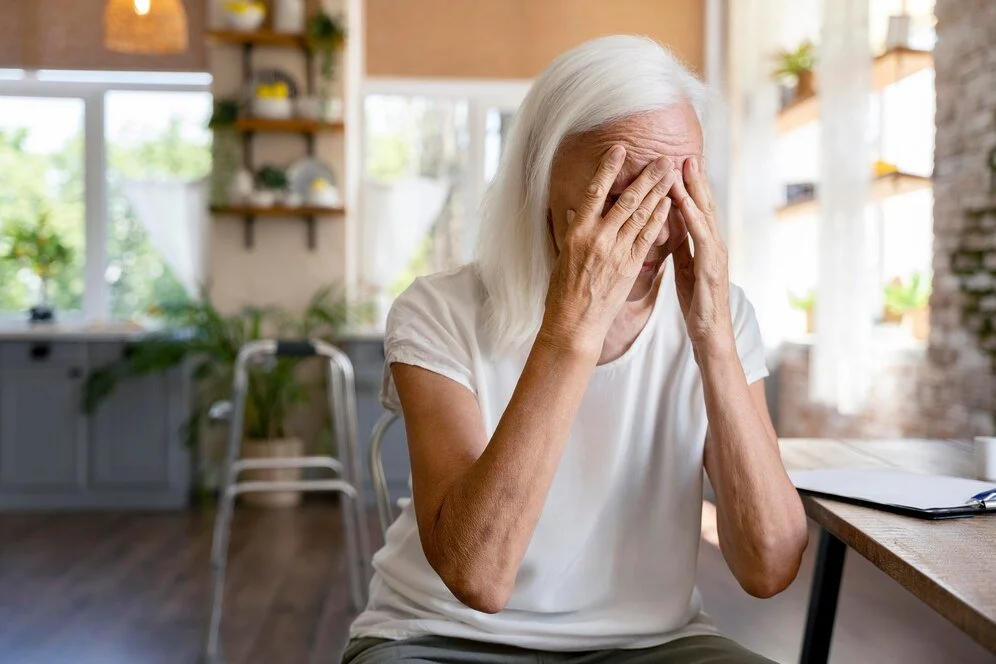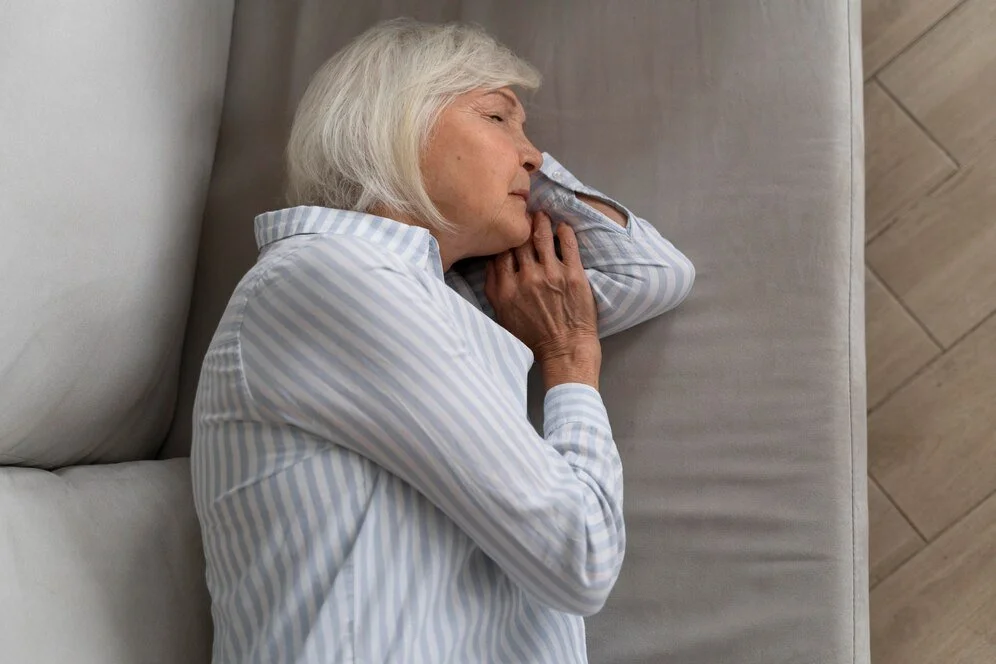Hormonal Fluctuations & Anxiety: Understanding Menopausal Connection
Last Updated 13 October 2024
Menopause is a natural phase in a woman's life that typically occurs between the ages of 45 and 55, characterised by significant hormonal changes, particularly a decline in estrogen levels. These hormonal fluctuations can lead to various physical and emotional symptoms, including anxiety. Understanding the connection between hormonal changes and anxiety during menopause is crucial for managing these symptoms effectively. This article will explore how hormonal fluctuations contribute to anxiety, the impact on mental health, and strategies for coping with these changes.
Hormonal Changes During Menopause
The menopausal transition involves a complex interplay of hormones that significantly affects women's bodies and minds:
Estrogen Decline: Estrogen plays a vital role in regulating mood and emotional stability. As estrogen levels decrease during perimenopause and menopause, women may experience heightened feelings of anxiety, irritability, and mood swings. Research indicates that lower estrogen levels can lead to decreased serotonin production, a neurotransmitter crucial for mood regulation.
Progesterone Levels: Alongside estrogen, progesterone levels also decline during menopause. Progesterone has a calming effect on the brain; its reduction can contribute to increased anxiety and restlessness. The interplay between these hormones can create an environment where anxiety thrives.
Impact on Neurotransmitters: The fluctuations in estrogen and progesterone can disrupt the balance of other neurotransmitters involved in mood regulation, such as dopamine and norepinephrine. This disruption can exacerbate feelings of anxiety and contribute to depressive symptoms.
Understanding these hormonal changes is essential for recognising their potential impact on mental health during menopause.
Symptoms of Anxiety During Menopause
Anxiety during menopause can manifest in various ways, often affecting daily life and overall well-being:
Physical Symptoms: Women may experience physical symptoms such as increased heart rate, sweating, trembling, and gastrointestinal disturbances. These symptoms can mimic panic attacks, leading to further distress.
Emotional Symptoms: Feelings of nervousness, irritability, and restlessness are common emotional responses to anxiety during menopause. Women may find themselves feeling overwhelmed by everyday tasks or situations that previously did not cause stress.
Sleep Disturbances: Anxiety can significantly impact sleep quality, leading to insomnia or difficulty falling asleep. Sleep disturbances can create a vicious cycle where poor sleep exacerbates anxiety symptoms.
Recognising these symptoms is crucial for understanding the challenges women face during menopause and seeking appropriate support.
Bidirectional Relationship Between Hormones and Anxiety
The relationship between hormonal fluctuations and anxiety during menopause is bidirectional:
Hormones Affecting Mood: As discussed earlier, declining hormone levels can lead to increased anxiety. The reduction in estrogen and progesterone affects neurotransmitter balance, contributing to mood instability.
Anxiety Impacting Hormones: Conversely, chronic anxiety can influence hormone levels. Stress triggers the release of cortisol, which can further disrupt the balance of sex hormones. Elevated cortisol levels have been linked to increased abdominal fat accumulation—a common concern during menopause—leading to additional health issues.
Coping Mechanisms: Understanding this bidirectional relationship highlights the importance of addressing both hormonal changes and anxiety symptoms concurrently. Effective coping strategies can help mitigate the effects of hormonal fluctuations on mental health.
Recognising this interplay is essential for developing holistic approaches to managing anxiety during menopause.
Strategies for Managing Anxiety During Menopause
Several strategies can help women manage anxiety related to menopausal hormonal fluctuations:
Lifestyle Modifications: Regular physical activity has been shown to reduce anxiety levels by promoting the release of endorphins—natural mood lifters. Aim for at least 150 minutes of moderate exercise each week. Additionally, maintaining a balanced diet rich in whole foods can support overall well-being.
Mindfulness Practices: Techniques such as mindfulness meditation, yoga, or deep breathing exercises can help reduce stress and improve emotional regulation. These practices encourage relaxation and promote a sense of calm amidst hormonal fluctuations.
Cognitive Behavioural Therapy (CBT): CBT is an effective therapeutic approach for managing anxiety. It helps individuals identify negative thought patterns related to anxiety and develop coping strategies to address them. Seeking support from a qualified therapist can provide valuable tools for navigating menopausal challenges.
Consider Hormone Replacement Therapy (HRT): For some women experiencing severe menopausal symptoms, HRT may be an option worth considering. HRT aims to restore hormone levels and alleviate associated symptoms, including anxiety. Consult with a healthcare provider to discuss potential benefits and risks based on individual health profiles.
Implementing these strategies can empower women to manage their anxiety effectively during menopause.
Conclusion: Embracing Change with Knowledge
In conclusion, understanding the connection between hormonal fluctuations and anxiety during menopause is vital for women's health. The decline in estrogen and progesterone levels significantly impacts mood regulation, leading to increased feelings of anxiety among many women experiencing this transitional phase.
By recognising the bidirectional relationship between hormones and anxiety, women can take proactive steps toward managing their symptoms effectively through lifestyle modifications, mindfulness practices, therapy options like CBT, and considering HRT when appropriate. As research continues into the complexities of menopause's effects on women's health, new insights will likely emerge regarding effective interventions for alleviating anxiety. Embracing this knowledge empowers women to navigate this life stage with resilience and confidence while prioritising their mental well-being.
Sources
National Institute on Aging: Menopause

















